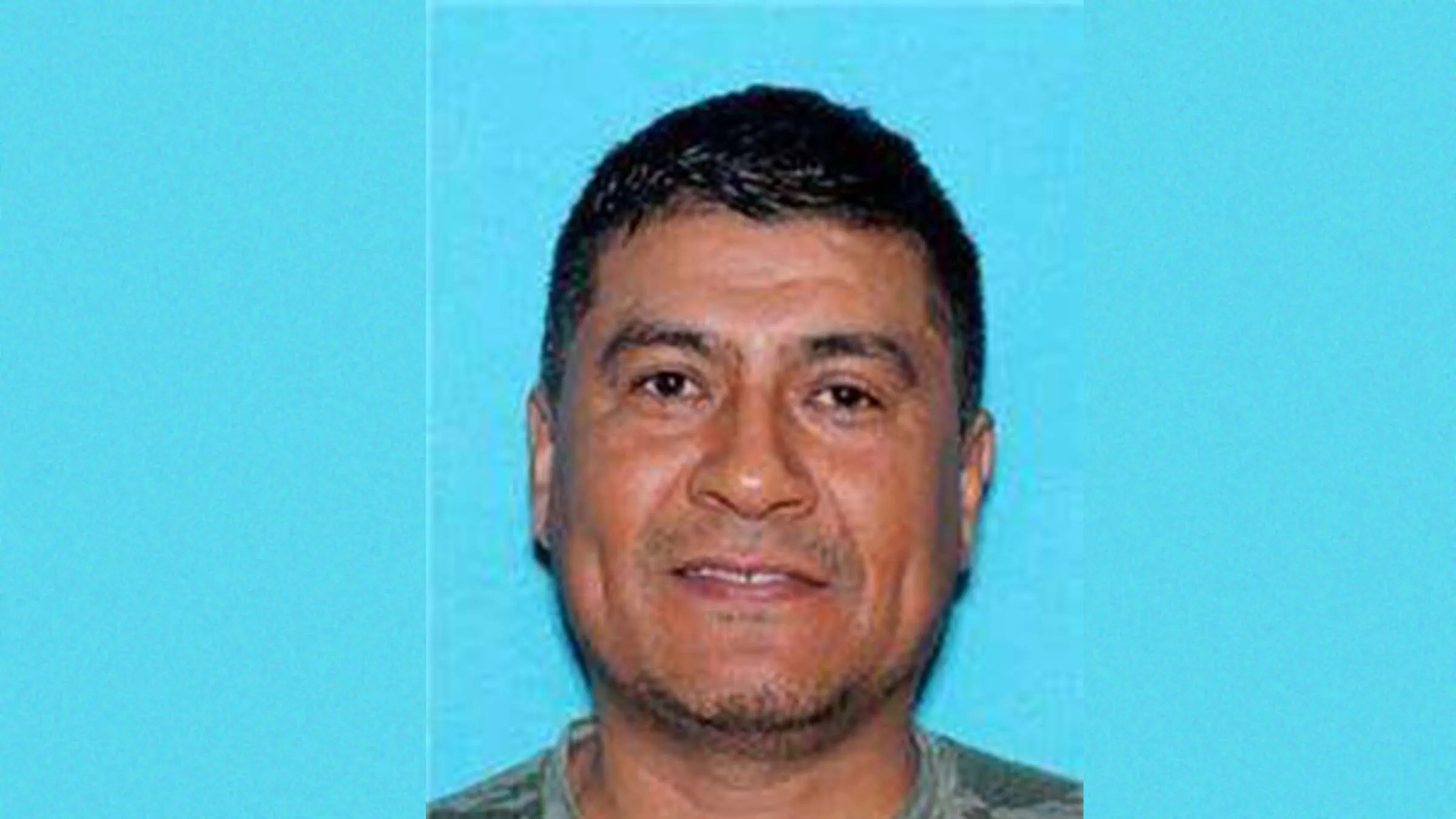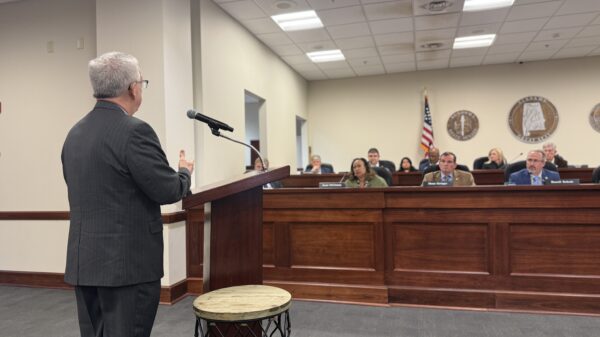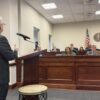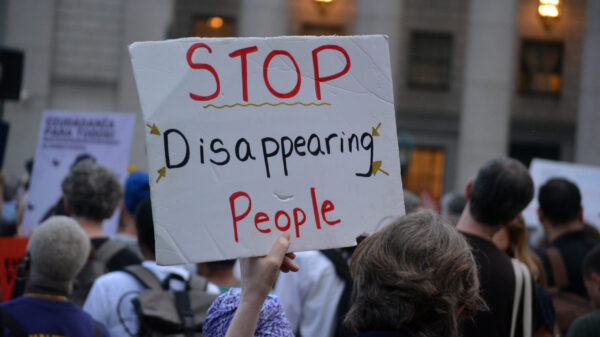Tears were shed and hugs were shared Wednesday after a judge denied the U.S. Government’s request to keep Cesar Campos-Reyes behind bars while awaiting trial.
Campos-Reyes, a 52-year-old Lee County resident, turned himself into federal authorities last Tuesday following a federal raid on eight of his businesses in the state (all Mexican restaurants) and six residences in order to arrest him on charges of bank fraud, wire fraud and money laundering. Campos-Reyes has been a naturalized U.S. citizen for 20 years despite a statement at a press conference last week that cast doubt on his legal status.
The parties were in federal court Wednesday for a hearing on whether Campos-Reyes should remain behind bars while awaiting a November trial on those charges. The U.S. Government argued that Campos-Reyes is a flight risk and danger to the community, but U.S. Magistrate Judge Stephen M. Doyle said there were no concerns raised by the government that could not be reasonably offset by GPS monitoring of Campos-Reyes and other conditions to ensure he remains in the Middle District of Alabama and on good behavior as the case progresses.
The defense, led by attorney Richard “Matt” Matthews Jr., brought forward two character witnesses to testify that Campos-Reyes has deep community ties that give reason to believe he is neither a flight risk or a danger to the community. Although only two people spoke in his favor, Matthews asked others invited to speak on his behalf to stand, with 14 individuals in all showing they were willing to speak to his character.
The U.S. Government focused particularly on a Macon County ranch owned by Cesar Campos-Reyes where Marco Antonio Guzman allegedly sold drugs, including cocaine and methamphetamines. All of the drugs and guns were found at the Guzman residence, while federal agents testified that they found $110,000 in cash at a residence where “illegal aliens were housed” and $25,000 at the residence of Campos-Reyes’ brother-in-law. They also referenced evidence of cockfighting such as razor blades kept near roosters on the property, which they said are commonly affixed to the spurs of roosters for cockfighting. They also alleged sources have reported horse races hosted on the ranch’s quarter-mile horse track, where illegal gambling would occur.
Kimberly Martin, who described herself as a friend to Campos-Reyes through her husband, testified that she is a private investigator and, upon hearing of Campos-Reyes’ arrest, looked into the living arrangements for Guzman at the ranch. She testified that led her to a conversation with the ranch’s previous owner, who told her that when she sold the property to Campos-Reyes, she asked that Guzman be allowed to continue living there as there had been a “gentleman’s agreement” allowing Guzman to live there and take care of the horses.
While Campos-Reyes does not live on the Macon County ranch, his parents live there and prosecutors alleged that he also harbored undocumented immigrations there who work at his various restaurants.
Nicholas del Toro, a special agent in the Auburn office of the FBI, described a scheme in which Campos-Reyes would facilitate the illegal entry of aliens into the country, testifying that employees would then owe Campos-Reyes five years of work in his business for facilitating their entry into the U.S.
“It’s indentured servitude,” said Michelle Turner, lead prosecutor for the Department of Justice.
Despite the testimony, Campos-Reyes does not currently face any charges of harboring, employing or smuggling illegal aliens. And despite the presence of “distribution quantities” of drugs, more than a dozen guns and more than $125,000 cash on the ranch property Campos-Reyes owns, no allegations have yet been levied by prosecutors that Campos-Reyes facilitated or had knowledge of any drug trafficking operations.
The government attempted to paint a picture that Campos-Reyes is a flight risk due to his “frequent travel” to Mexico and the presence of an alleged girlfriend and child in the Atlanta area.
“He’s been evasive from the start,” Turner argued before the judge.
Del Toro described Campos-Reyes’ movements on July 15, the day that FBI, DHS, ICE and others raided Campos-Reyes’ restaurants and residences.
“He left El Patron of Opelika at 10:20 a.m., about 10 minutes before officers arrived,” del Toro said.
From there, he went to see Cheryl Starkey, who del Toro testified is the accountant for Campos-Reyes, although he testified he is unsure whether she is a CPA. Starkey is named as a co-conspirator of Campos-Reyes in three adjacent criminal complaints against Campos-Reyes’ employees.
Del Toro said he interviewed Starkey, who informed del Toro that Campos-Reyes began receiving messages of the raids while at her office and promptly left. During the course of the two-hour hearing, prosecutors said Campos-Reyes contacted Guzman to tell him to leave the ranch and not come to any of the businesses, and then turned his phone off. He reportedly then contacted Starkey from another phone, possibly his mother-in-law’s, to ask Starkey whether he should retain an attorney. Campos-Reyes’ phone remained off the majority of the day, prosecutors said.
Matthews argued that Campos-Reyes turned himself in and has no criminal history and no indication that he has ever failed to appear for a court date. But Turner said Campos-Reyes only turned himself in “after his face had been plastered all over TV as a fugitive of justice.”
Matthews told Doyle he had concerns about Fourth Amendment violations hearing the government’s testimony about whether Campos-Reyes’ phone was turned off, stating he had not reviewed any documentation authorizing the government to monitor that activity.
While the brunt of the hearing focused on the risk of Campos-Reyes fleeing and whether his release would endanger the community, there was also further discussion of the charges against him.
Del Toro said Campos-Reyes unlawfully used funds obtained through the Paycheck Protection Program and Economic Disaster Injury Loans to put a down payment on a property for a new restaurant. Matthews grilled del Toro about whether he could say what Campos-Reyes ultimately used the money for—whether to pay his own salary, employees, inventory to other eligible expenses. Del Toro said he could not testify to how Campos-Reyes spent the funds, except in the case of the down payment on the new restaurant property.


















































